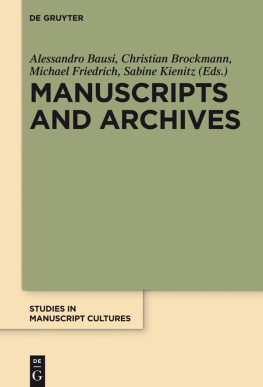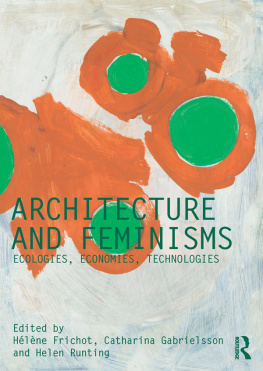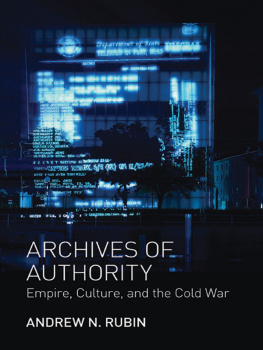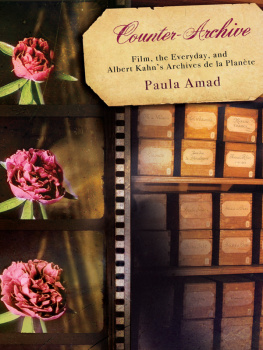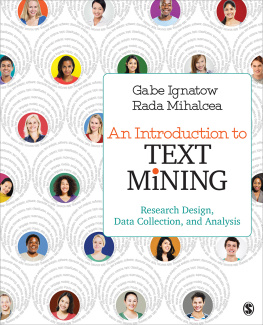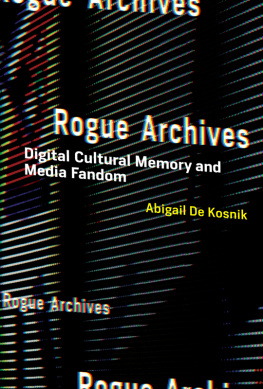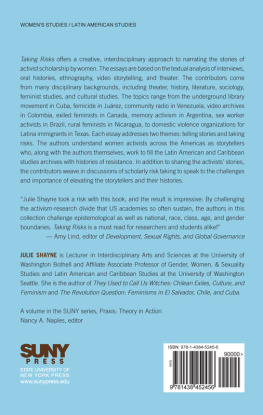
Archives and New Modes of Feminist Research
In an era when the metaphor of the archive is invoked to cover almost any kind of memory, collection or accumulation, it is important to re-examine what is entailedpolitically and methodologicallyin the practice of feminist archival research. This question is central not only to the renewed interest many disciplines are showing in empirical research in archives but also given the current explosion of online social and cultural data which has fundamentally transformed what we understand an archive to be. Contributors in this collection are keen to mark out what may be novel and what is enduring in the ways in which feminist thought and feminist practice frame archives. Importantly, they engage with archives in their historical and political complexity rather than treating them as simple repositories of source material. In this respect, contributors are keenly interested in what it means to archive particular materials, and not simply in what those materials may hold for feminist researchers. The collection features established and emerging feminist scholars and brings together interventions from across such disciplines as history, literature, modernist studies, cinema studies and law.
This book was originally published as a special issue of the journal Australian Feminist Studies.
Maryanne Dever is a Professor and an Associate Dean in the Faculty of Arts and Social Sciences at the University of Technology Sydney, Ultimo, Australia. She is the joint Editor-in-Chief of Australian Feminist Studies. She has published widely in the areas of womens and gender studies and critical archival studies.
Archives and New Modes of Feminist Research
Edited by
Maryanne Dever
First published 2019
by Routledge
2 Park Square, Milton Park, Abingdon, Oxon, OX14 4RN, UK
and by Routledge
711 Third Avenue, New York, NY 10017, USA
Routledge is an imprint of the Taylor & Francis Group, an informa business
2019 Taylor & Francis
All rights reserved. No part of this book may be reprinted or reproduced or utilised in any form or by any electronic, mechanical, or other means, now known or hereafter invented, including photocopying and recording, or in any information storage or retrieval system, without permission in writing from the publishers.
Trademark notice : Product or corporate names may be trademarks or registered trademarks, and are used only for identification and explanation without intent to infringe.
British Library Cataloguing-in-Publication Data
A catalogue record for this book is available from the British Library
ISBN13: 978-1-138-33795-4
Typeset in Myriad Pro
by codeMantra
Publisher's Note
The publisher accepts responsibility for any inconsistencies that may have arisen during the conversion of this book from journal articles to book chapters, namely the possible inclusion of journal terminology.
Disclaimer
Every effort has been made to contact copyright holders for their permission to reprint material in this book. The publishers would be grateful to hear from any copyright holder who is not here acknowledged and will undertake to rectify any errors or omissions in future editions of this book.
Contents
Maryanne Dever
Marika Cifor
Margaret Galvan
Zelmarie Cantillon, Sarah Baker and Bob Buttigieg
Gemma Killen
Faye Chisholm Guenther
Nikki Henningham, Joanne Evans and Helen Morgan
Trish Luker
Jenna Ashton
Jane Simon
Jacinta Kelly
Michelle Moravec
Kathryn M. Hunter
Guide
The chapters in this book were originally published in the journal Australian Feminist Studies, volume 32, issues 91-92 (MarchJune 2017). When citing this material, please use the original page numbering for each article, as follows:
Introduction
Archives and New Modes of Feminist Research
Maryanne Dever
Australian Feminist Studies, volume 32, issues 91-92 (MarchJune 2017) pp. 1-4
Chapter 1
Stains and Remains: Liveliness, Materiality, and the Archival Lives of Queer Bodies
Marika Cifor
Australian Feminist Studies, volume 32, issues 91-92 (MarchJune 2017) pp. 5-21
Chapter 2
Archiving Wimmen: Collectives, Networks, and Comix
Margaret Galvan
Australian Feminist Studies, volume 32, issues 91-92 (MarchJune 2017) pp. 22-40
Chapter 3
Queering the Community Music Archive
Zelmarie Cantillon, Sarah Baker and Bob Buttigieg
Australian Feminist Studies , volume 32, issues 91-92 (MarchJune 2017) pp. 41-57
Chapter 4
Archiving the Other or Reading Online Photography as Queer Ephemera
Gemma Killen
Australian Feminist Studies, volume 32, issues 91-92 (MarchJune 2017) pp. 58-74
Chapter 5
Archives, Creative Memoirs, and Queer Counterpublic Histories: The Case for the Text-as-Record
Faye Chisholm Guenther
Australian Feminist Studies , volume 32, issues 91-92 (MarchJune 2017) pp. 75-90
Chapter 6
The Australian Womens Archives Project: Creating and Co-curating Community Feminist Archives in a Post-custodial Age
Nikki Henningham, Joanne Evans and Helen Morgan
Australian Feminist Studies, volume 32, issues 91-92 (MarchJune 2017) pp. 91-107
Chapter 7
Decolonising Archives: Indigenous Challenges to Record Keeping in Reconciling Settler Colonial States
Trish Luker
Australian Feminist Studies, volume 32, issues 91-92 (MarchJune 2017) pp. 108-125
Chapter 8
Feminist Archiving [a manifesto continued]: Skilling for Activism and Organising
Jenna Ashton
Australian Feminist Studies, volume 32, issues 91-92 (MarchJune 2017) pp. 126-149
Chapter 9
Documenting the Domestic: Chantal Akermans Experimental Autobiography as Archive
Jane Simon
Australian Feminist Studies, volume 32, issues 91-92 (MarchJune 2017) pp. 150-170
Chapter 10
Of Archives and Architecture: Domestication, Digital Collections, and the Poetry of Mina Loy
Jacinta Kelly
Australian Feminist Studies, volume 32, issues 91-92 (MarchJune 2017) pp. 171-185
Chapter 11
Feminist Research Practices and Digital Archives
Michelle Moravec
Australian Feminist Studies, volume 32, issues 91-92 (MarchJune 2017) pp. 186-201
Chapter 12
Silence in Noisy Archives: Reflections on Judith Allens Evidence and Silence Feminism and the Limits of History (1986) in the Era of Mass Digitisation
Kathryn M. Hunter
Australian Feminist Studies, volume 32, issues 91-92 (MarchJune 2017) pp. 202-212
For any permission-related enquiries please visit:
http://www.tandfonline.com/page/help/permissions
Jenna Ashton is the Impact and Engagement Manager at Manchester Metropolitan University, UK. She is the Founder and Creative Director of the arts and heritage organisation Digital Womens Archive North CIC (DWAN). She works across the disciplines of digital cultures, visual studies, sociology and cultural geography and heritage.


